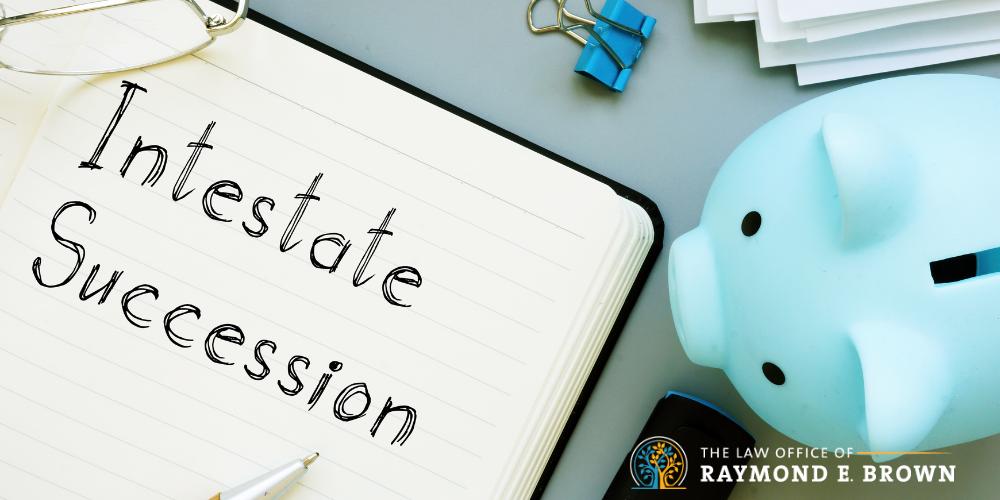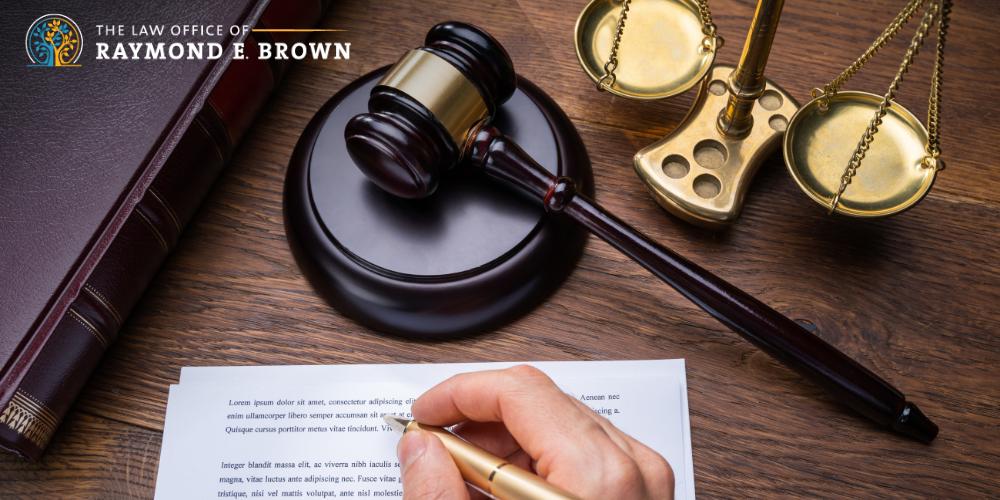In Maryland, when a person dies, the distribution and management of their estate begins. A personal representative, sometimes also referred to as an executor or administrator, is given the responsibility to manage the estate. This includes paying any outstanding debts, handling tax obligations, and distributing assets to designated beneficiaries. If the decedent left a will, the personal representative ensures that the will’s provisions are followed in distributing the estate.
However, if the decedent dies without a valid will in Maryland, what is called “intestate succession” will take place. Maryland intestacy law dictates who will inherit property and assets left by the decedent and in what order. This typically prioritizes close relatives such as spouses, children, or parents, but the exact distribution can vary based on the specific family situation of the decedent.
In this post, our Annapolis estate planning attorneys at The Law Office of Raymond E. Brown will cover intestate laws in Maryland and what the process of succession might look like for family members of a person who died without a will. For more information or to speak with a knowledgeable attorney from our firm directly, please feel free to give us a call at (443) 554-9944 or reach out online today.

What is Intestate Succession?
Intestate succession is the process in which a person’s assets are distributed if they die without a valid will. In Maryland, intestate succession is governed by state law, specifically by the Maryland Code, Estates and Trusts Article.
It’s important to note that if a person dies without a valid will, their assets will be distributed according to Maryland’s intestacy laws, regardless of their wishes. This may result in assets being distributed to relatives the decedent may not have intended to inherit. This is why it’s crucial to have a valid will and estate plan in place to ensure that your assets are distributed according to your wishes.

Maryland Intestate Succession Laws
The laws regarding how intestate succession works in Maryland can be found in Title 3, Subtitle 1, §§ 3-101 – 3-112 of the Maryland Code. Below are links to each of the sections provided in this article:
- Section 3-101 – Order of distribution of net intestate estate
- Section 3-102 – Share of surviving spouse
- Section 3-103 – Division among surviving issue
- Section 3-104 – Distribution when there is no surviving issue
- Section 3-105 – Escheat
- Section 3-106 – Advancement
- Section 3-107 – After-born child
- Section 3-108 – Inheritance from illegitimate person
- Section 3-109 – Person related to decedent through two lines
- Section 3-110 – Certain heirs not surviving decedent for 30 days
- Section 3-111 – Prohibition of distribution upon commitment of certain crimes or acts
- Section 3-112 – Abandonment or failure to support minor children
Which Assets Are Affected by Maryland’s Intestacy Laws?
In Maryland, assets that go through the probate process and are considered “intestate property” are regulated by the state’s intestacy laws. Specifically, intestate property refers to assets that the decedent owned solely and did not designate a beneficiary for or did not transfer into a trust. If the decedent did not leave a valid will to specify the distribution of these assets, Maryland’s intestacy laws will dictate how the property is divided among surviving relatives. This may include bank accounts, real estate, personal property, and other assets not otherwise designated.

What Happens When Someone Dies Without a Will in Maryland?
Under Maryland law, if a person dies without a will, their assets will be distributed to their heirs according to a specific order of priority. The order of priority is as follows:
Surviving Spouse
If the decedent is survived by a spouse but has no children, the surviving spouse inherits the entire estate. If a spouse and children survive the decedent, the spouse will inherit the first $15,000 of the estate plus one-half of the remaining estate. The other half of the estate will be distributed equally among the children.
Surviving Children
If a spouse does not survive the decedent, their children will inherit the entire estate in equal shares. This includes biological children as well as any adopted children of the decedent. If a child has predeceased the decedent but is survived by their own children, the deceased child’s share will be divided among their children.
Surviving Parents
If a spouse or children do not survive the decedent, their parents will inherit the decedent’s estate in equal shares. If only one parent survives the decedent, the surviving parent will inherit the entire estate.
Surviving Siblings
If the deceased person is not survived by a spouse, children, or parents, their siblings will inherit the deceased person’s estate in equal shares. If a sibling has predeceased the decedent but is survived by their own children, the deceased sibling’s share will be divided among their children.
Other Relatives
If any of the above does not survive the decedent, their estate will pass to more distant blood relatives in a specific order of priority, as defined by Maryland law.

To Learn More About Maryland Intestacy Laws or To Start Your Estate Plan, Call The Law Office of Raymond E. Brown Today
Navigating the intricate maze of estate administration in Maryland, especially in the context of intestate succession, can be a daunting experience. Without a valid will in place, the state’s intestacy laws take precedence, which might not always align with the decedent’s wishes. Even a small estate can still present unique challenges that require diligent management.
Ensuring that your assets go to the designated beneficiaries without unnecessary legal complications requires experienced legal counsel. That is why equipping the help of an experienced Maryland estate administration attorney like Raymond E. Brown can prove invaluable.
At The Law Office of Raymond E. Brown, our attorneys possess the knowledge to provide accurate legal information, guide families through the complexities of estate administration, and ensure assets are distributed correctly. Whether you’re planning for the future or navigating the aftermath of a loved one’s passing, Raymond E. Brown and his team can offer peace of mind and clarity in an otherwise overwhelming process. Don’t leave such crucial matters to chance; seeking professional guidance can make all the difference.
To speak with an experienced Annapolis estate planning attorney, call our law office at (443) 554-9944 or complete our online intake form today.

